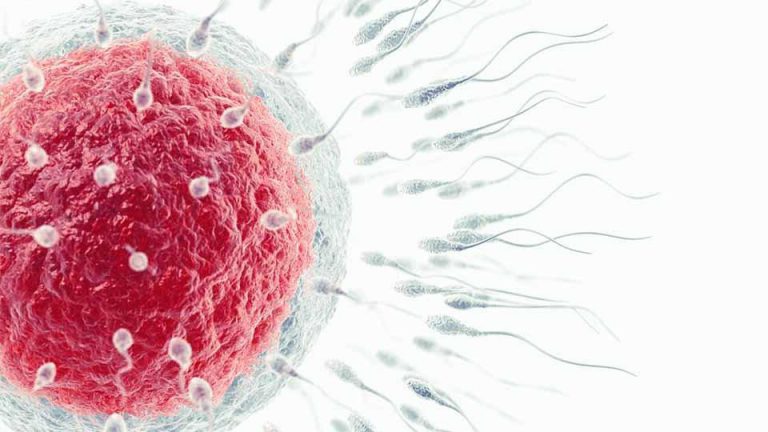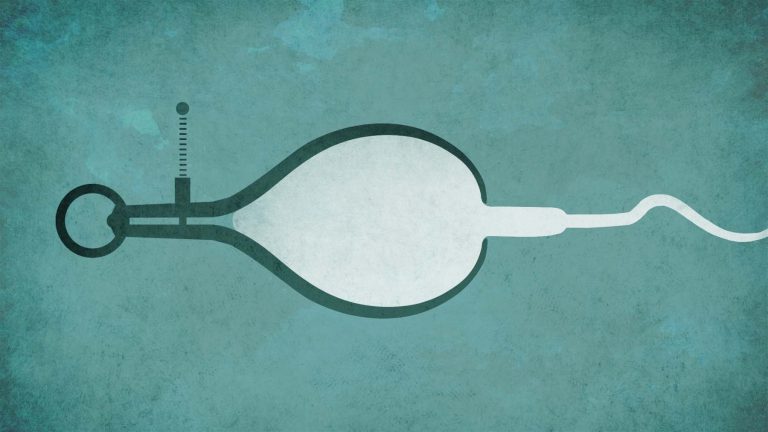Sperm quality and male age – paternal age effect
Pablo Picasso had a son, Claude, when he was in his sixties. Steve Martin just had a baby girl at 67. And I believe that Nanu Ram Jogi with his youngest child, two-week-old Girija Rajkumari, sets a record for being the oldest father at 90 years old. It’s well understood that women have a set number of years to reproduce as menopause defines the upper limit.
As described above, men can reproduce well into old age, assuming they remain healthy and, well, functional. Yet, growing evidence suggests that paternal age can increase the risks of these disorders in the offspring. Maybe we’ve just been lucky. What is this paternal age effect?
Sperm Age Testing. Easy, Mail-in Kit.
ORDER NOWPaternal Age Effect on Sperm
The paternal age effect is the theory that there are statistical relationships between a man’s age and sperm abnormalities, fertility, pregnancy outcomes, birth outcomes (i.e., birthweight), or the probability that his offspring will have an increased chance of being autistic, bipolar, or schizophrenic. A number of recent meta-analyses have established that there is an increased risk of autism and schizophrenia in the offspring of older fathers.
In parallel, a number of studies have shown that there is a very clear relationship between increased mutation rate in the sperm and paternal age, mutations that are then inherited by the offspring. In addition to increased risk of autism and schizophrenia, the paternal age effect is thought to contribute to other neurological diseases such as bipolar disorder. Furthermore, there appears to be a multigenerational effect, where grandchildren of grandfathers of significant paternal age (me, for example, with my grandfather being 55 when my dad was born), being at increased risk of developing autism and schizophrenia. This begs the question: if gene mutations are the cause of these disorders, how is it possible for them to skip a generation? Could something else be at play? Here’s a video from Dr. Randall Loy, a reproductive endocrinologist from CRM Orlando, discussing age-related issues in sperm:
An Epigenetic Explanation
Although there are a number of inherited disorders that now have very clear genetic sources (e.g., retinitis pigmentosa or cystic fibrosis), most of the neurocognitive disorders such as autism, bipolar disorder, or schizophrenia have weak genetic correlates at best. However, there still remains a very clear heritability of these diseases. Perhaps the source is epigenetic rather than genetic. In fact, it has certainly been argued that the increased risk of schizophrenia in the offspring of older fathers may be the result of aberrant epigenetic regulation rather than an increased mutation rate. There has certainly been an increasing interest in the paternal influence, via epigenetic mechanisms, on early offspring development. Indeed, epidemiological and controlled animal studies in the lab suggest that your father’s nutritional and toxicological exposures, as well as paternal age, can impact your health (and the health of your children). These findings suggest a potential transgenerational impact of paternal effects.
The major psychiatric disorders of autism, schizophrenia, and bipolar disorder are extremely complex, where the etiology is still poorly understood. That being said, these disorders are neither clearly genetic nor environmental; they involve an interaction of the two. The continual absence of clear major genetic effects from the GWAS studies, combined with very clear, long-lasting changes in gene expression after the environmental trigger or exposure, suggests that the biological mechanism of these disorders are epigenetic in nature rather than sequence-mutation based. I wouldn’t be surprised if we find that the paternal age effect is a function of a changing epigenetic profile in the sperm.







